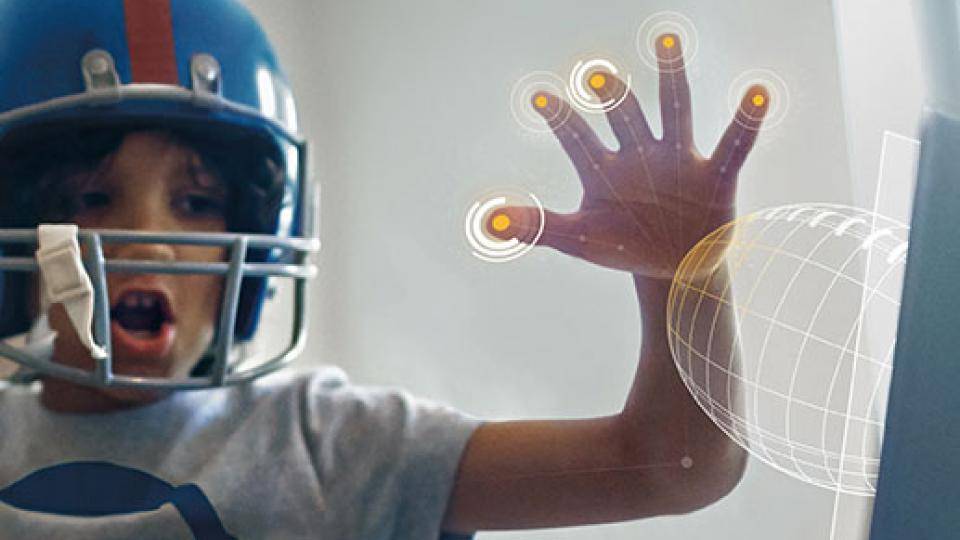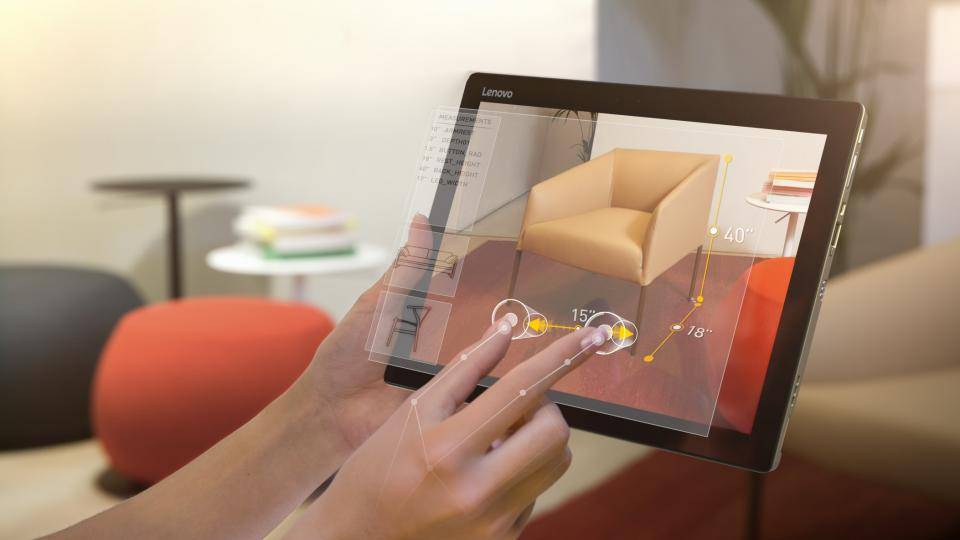Lenovo is banking on gesture technology to sell its latest line of tablets, laptops and all-in-one PCs, sticking in an Intel RealSense camera into every device that has space for it. Below, we round up all of Lenovo's new kit announced at IFA this year, but first: do you actually want a RealSense PC?
Should you buy a RealSense PC?
We've had a fair amount of experience with RealSense, and while it's certainly not perfect, it's a serious interesting prospect that will work best on laptops and desktops. RealSense utilises a camera and multiple sensors to calculate distances on objects in the physical world, meaning it can be used for both gesture controls and for scanning real-world objects into 3D programs.

We've tried it in various forms, including on the Dell Venue 8 7840 tablet, HP's Sprout and at an Intel event earlier this year. The tech is seriously impressive, and while you can't deny it has a gimmicky feel to it, there are genuine use cases where it will work fantastically. For example, being able to gesture control a laptop or all-in-one means you can sit back and forgo your mouse and touch screen, and instead make subtle hand gestures to get Windows to do what you want. The issue, of course, is whether manufacturers' bespoke software will be good enough.
What's more, RealSense is great for security: Being able to take a 3D scan of somebody's face for security purposes is significantly more secure than simple 2D images, and the fact that Windows Hello - a new secure login feature in Windows 10 - supports RealSense, means that security-conscious companies and individuals will be looking at RealSense with a very keen eye.
The other issue is price difference: how much more will a device cost with our without RealSense? We don't know exactly yet, but that could be a decider for many buyers on a budget.
Ideapad MIIX 700
Perhaps the most interesting of Lenovo's announcements was its new range of IdeaPad MIIX 700 tablets. At first glance it looks similar to Microsoft's Microsoft's flagship Surface devices. It comes with an as-yet-unspecified Intel Core M processor, which in turn allows the chassis to be ridiculously thin at just under 9mm, including the wafer thin keyboard. Like the Microsoft Surface, the tablet portion and keyboard detach. To keep the tablet upright when attached to the keyboard, Lenovo has employed a kickstand operated by its impressive "watchband" hinges that we first saw on the Yoga Pro 3 last year.
The top-spec model will get a 2,160x1,440 pixel screen, although on such a tiny device, you'll need to whack up Windows 10's display scaling options in order to actually use the MIIX 700 in a way that doesn't induce eye strain.
You also get an (up to) 256GB SSD, (up to) 8GB of RAM and a claimed 9 hours of battery life. Dual-band 802.11ac Wi-Fi is also included.
The Intel RealSense camera is an optional extra, and the pricing and availability of RealSense models has yet to be confirmed. The cheapest model will cost €999, which equates to roughly £828 including VAT. Lenovo says the MIIX 700 will be on sale in January 2016.
Ideacentre all-in-ones
Also receiving new RealSense tech is Lenovo's range of Ideacentre AIO machines. Announced at IFA are two ranges, one with AMD tech on board and the other with Intel, some of which will get RealSense cameras.
Both devices have removable rear covers for maintenance and hardware tweaks, although exactly what you'll be able to access remains to be seen. We'd expect RAM and storage to be accessible at the very least.
The AMD kit is a 23.8in device with a Full HD touch screen, up to an A10 processor and capable graphics performance from an AMD R9 A375 GPU. The Intel device, meanwhile, is 21.5in diagonally with a Full HD touch screen, although Lenovo has touted the availability of Ultra HD screens for these models, too.
The Intel machine will come with sixth-generation Skylake processors with top-spec models getting a Core i7 processor. An Nvidia GeForce GTX 950M GPU is also promised for the top-spec model, making it a reasonably capable gaming all-in-one. Intel RealSense will be an optional extra on this machine.
Everything else
Lenovo also refreshed its Ideapad laptop range, which range from the budget 100S and 300S to its multimedia-focussed 300 and 500 models. Lenovo is focussing on the extreme diet plan of all four machines, touting significant weight reductions on all four laptops compared to their equivalent models four years ago.The 500 will also get an optional RealSense camera
Finally, Lenovo also updated its Y-Series desktops and laptops, which have some of the most extreme specifications of any of the firm's devices. The top-end laptops include, top-end Intel and AMD processors and graphics, and, yes, Intel RealSense.
Exact specifications of the desktops remain sketchy, but Lenovo says top-end Ideacentre Y900 will come with Nvidia GeForce GTX 980s, Skylake Intel Core i7 processors and up to 32GB of RAM. As always, though, retailerer demand will affect what models actually go on sale here in the UK.
The gaming desktops are of particular interest, as all four of the major PC manufacturers now have gaming brands, attempting to mop up the growing gaming PC market. Lenovo finds itself up against HP Envy and Omen, Dell's Alienware and Acer's Predator brands.

